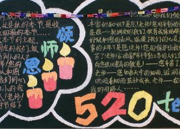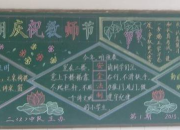环境保护的英语情景剧剧本
时间:2021-08-31篇一、环境保护的英语情景剧剧本
A; is the environment a big issues in your country? It is in mine.

B: it is in mine too. The biggest issue is water. The climate is dry and so water conservation is very important.
A: what methods do you use to conserve water?
B: water is rationed. We can only use a certain amount each month. It means that we cannot use some modern household items, like washing machines. They use too much water.
A: I see. I think the biggest environment problem in my country is air pollution.
B: yes, I agree. The air here is much more polluted than in my country. Of course, my country is more agricultural and has much less industry.
A: we have reduced emission of air pollutants in recent years, but cars are still a major source of them. Factories have become cleaner as stricter environment pollution law have been introduced.
B: the problem is now on a truly global scale. I don’t believe that any single country can do anything about it.
A: I think you’re right. There needs to be an international response to this problem.
篇二、环境保护的英语情景剧剧本
A: there are so many environment problems in the world today. Do you think we can really solve them all or will destroy the world?
B; I hope that world leaders can get together and agree on a plan for action, but I doubt it’ll happen before it’s too late.
A; we need to solve the problem of air pollution before we destroy the atmosphere. There’s lots of clean, modern technology, but companies in developed countries say it’s expensive. Developing countries put more emphasis on economic development than on environment protection.
B: everyone is looking at the issue in the short term, rather than the long term. It’s the same with the destruction of the rainforests. Countries and companies just want the wood. They’re not thinking about the long-term damage to the forests. We should also remember that the forests are an important natural habitat for thousands of species of animal and plant life.
A; in other parts of the world, especially in Africa, there is a problem with desertification. Climate change and over-farming are causing farmland to turn into desert. In means that people cannot grow enough food.
B: it also means that people sometimes fight over the farmland that remains. Damaging the environment actually leads to conflict between people.
A: have you ever thought about joining an organization committed to protecting the environment? You could get involved with projects to improve the environment.
B: I think I’d like to do that. I could take the things I learn here back to my country when I have finished my studies.
Bonny:We are going to do some research on the pollution of the Pearl River. Do you have any idea about it?
Jason:Since pollution is one of the biggest problems in the world, I’m sure a lot of people are interested in this topic.
Sarah:Polluted water is a great danger to people’s health, so I think our work is very meaningful.
Bonny:And we can visit some factories along the river.
Jason:Good idea, because factories always pollute the environment by pouring waste water directly into rivers.
Bonny:We can also borrow some books on this topic.
Jason and Sarah:OK. Let’s go to the library now.
邦妮:我们将做一些关于珠江污染的研究。你是否有一些关于它的主意?
贾森:由于污染成为世界上最大难题之一。我肯定许多人对这个论题有兴趣。
莎拉:水污染是很损害人们健康的,所以我想我们的工作是很有意义的.。
邦妮:我们可以参观一下建在河流旁边的工厂。
贾森:好主意,因为工厂经常排出的废水直接流进河里污染环境。
邦妮:我么也能借一些关于这个论题的书籍。
贾森和莎拉:好的。我们现在就去图书馆。
【环境保护的英语情景剧剧本】相关文章:
2.情景剧本怎么写
5.剧本儿童情景剧
6.问题不少情景剧本
7.校园的情景剧剧本
8.大学情景剧剧本











